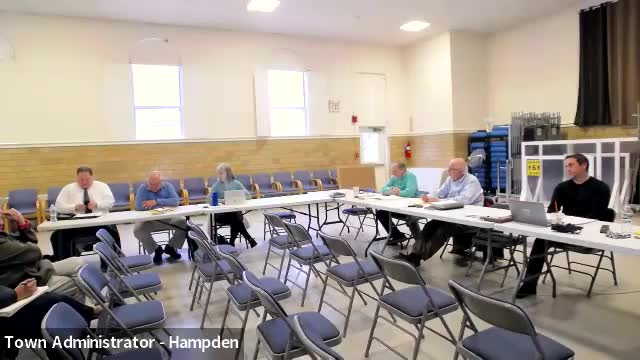Wilbraham, Hampden officials debate cost-sharing framework for Minnechaug Middle School upgrades
Get AI-powered insights, summaries, and transcripts
Subscribe
Summary
Officials from the Town of Wilbraham and the Town of Hampden discussed a draft proposal for how Hampden might contribute to capital improvements at Minnechaug Middle School without taking ownership equity, focusing on refund mechanics tied to useful life and thresholds for capital spending.
Officials from the Town of Wilbraham and the Town of Hampden on April 2 discussed a draft framework for how Hampden could contribute to capital improvements at Minnechaug Middle School while avoiding an ownership stake in the building.
The draft, presented by Brian Bridal, proposes that Hampden pay for capital items up front for a defined useful life and receive a proportional refund if Hampden students stop using the building before that useful life expires. "Some arrangement where Hampden could contribute to capital improvements to the building with a defined, useful life for a defined term of years," Bridal said, describing an example in which a 10-year useful life would be used to calculate any refund.
Why it matters: Hampden and Wilbraham share the regional middle school but have different concerns about investing capital into a jointly owned building. Hampden officials said they want assurance they are not effectively enriching Wilbraham if Wilbraham later sells the building or reapportions value after capital work is completed.
Discussion centered on mechanics and scope. Board members pressed for clarity on which items constitute capital versus maintenance, how depreciation would be handled, and what threshold would trigger capital classification. Participants referenced previous work under the Massachusetts School Building Authority (MSBA) that expects occupancy commitments — one participant noted MSBA projects often include a 20-year occupancy expectation — and that some capital items (for example, windows with a multi-decade life) are different from equipment that may have little or no residual value.
Participants offered illustrations to test the draft. Bridal described a hypothetical $1 million upgrade with a $200,000 Hampden contribution and said Hampden’s return would be calculated on the remaining years of useful life, not a claim to ownership. Officials noted complications if work is financed with shared debt rather than paid up front, and several said lawyers would need to craft specific contract language. One Select Board member observed that a simple proportional refund does not account for depreciation and suggested adding depreciation mechanics to the formula.
Board members agreed the draft is a reasonable starting point but asked staff to refine the proposal and return with more precise language and examples. They planned another joint meeting to continue negotiations and to make sure any amendments align with the regional agreement’s amendment procedures, which the participants said generally require bringing proposed changes to town meetings for voter approval.
The Select Boards scheduled follow-up work and asked staff to provide a more formal memo and specific proposed language ahead of the next joint meeting.
